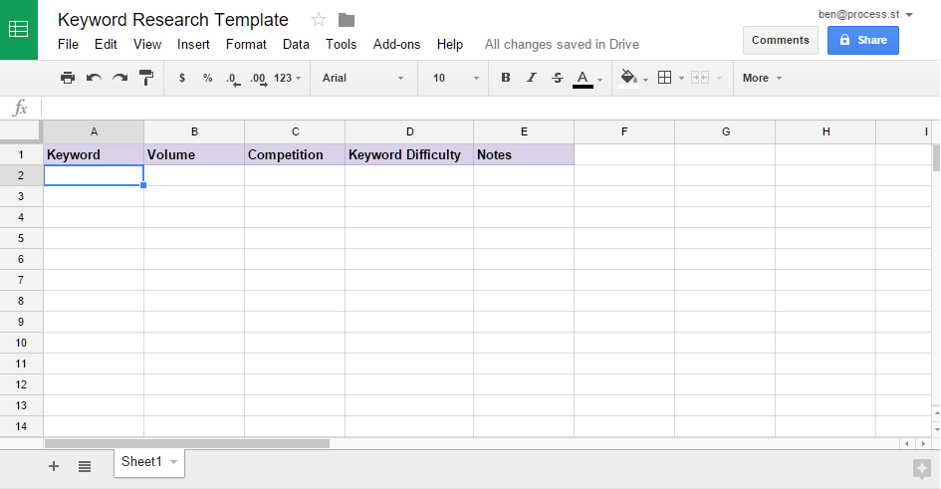In this lesson we'll start by developing and setting some marketing goals. These will drive all the decisions you make in your marketing plan, so it's worth taking some time to make sure these goals are smart and effective.
We'll dive into keyword research – the targeting you will use to connect with your customer avatars, including a look at the difference between hashtags and keywords.
We'll also introduce a few design tools that will be useful for upcoming practicals and implementing your plan. They take a little time to learn, so we'll introduce them now so you have time to experiment.
It's time to plan identify specific keywords that will be used throughout your posts, ads and SEO.
The work you complete in this practical may also be applied to Assessment 1.
Identify Your Competitors
Start by listing a few competitors and their domain names. You can also use a tool such as Keyword Planner (from Google) or SEM Rush to understand a bit more about the keywords that rank for your competitors.
Research some of your Primary Keywords
Identify your primary keywords, and check keyword difficulty. You can use keyword research tools like SEMrush to conduct keyword research around your products and services.
You can also use Google Keyword planner for your keywords.
Start with your top 5 – normally the top categories of products of services you offer and try to fill those main “buckets” up.
Find Long Tail Keywords and Question Keywords
The keywords are categorized into the “head/small tail,” the “body,” and the “long tail”.
For example:
-
Head phrase: “black tie” is a high-level query with high search volume.
-
Body phrase: “how to wear a black-tie” show specific intent with lower average search volumes.
-
Long tail: “where to get a black tie with white lines” is a very specific query with even lower search volume.
Such long-tail keywords make up more than half the searches on the internet. This means that if you don’t target long-tail keywords correctly, you minimize your chances of getting any decent traffic from search engines.
These are highly specific keywords, and they match more closely to what a person would search when performing a search. Search volume is usually quite low for such keywords but the potential conversion rate is high. Writing high-quality content that targets long-tail keywords will give your site a sustainable SEO boost. So, make sure that your SEO strategy targets long-tail keywords.
You can use a spreadsheet like the one below to start track your keywords:

Use the Researched Keywords in Your Posts
Use your researched keywords to plug your products and services naturally in your post once. Keep it as near to the top of the page as possible. Just make sure that you are writing for actual people and not for Google alone. You can also place the researched keywords in:
The page title
If you can use the keyword in your title, it will really help with on-page SEO. However, if you can’t use it naturally in the title, use a variation that still sends out the right message in the main words from your keyword phrase. Something is better than nothing!
The image alt text
Images and content go perfectly well together. Always use images in your content as they increase the appeal of your words and can better engage and inform your audience. Adding Image alt text will improve the accessibility, user experience, and SEO of your website. If you use your keywords in an image alt-tag, it will show up during image searches.
The page URL
Make sure your target keyword appears in your page’s URL. It will help search engines what your page is about.
The H1, H2, and H3 headings
You can rank for multiple keywords by adding them in your headings. When you use keywords in headings, it makes them relevant to your content and make it clear for the search engines.
Post your keyword research to your thread in the Practicals Forum.
Please include the title "Practical 4: Keyword Research" in your post.
Learning together: We learn better with a little encouragement and discussion. Check out the answers of other students and leave a comment on their posts too.
